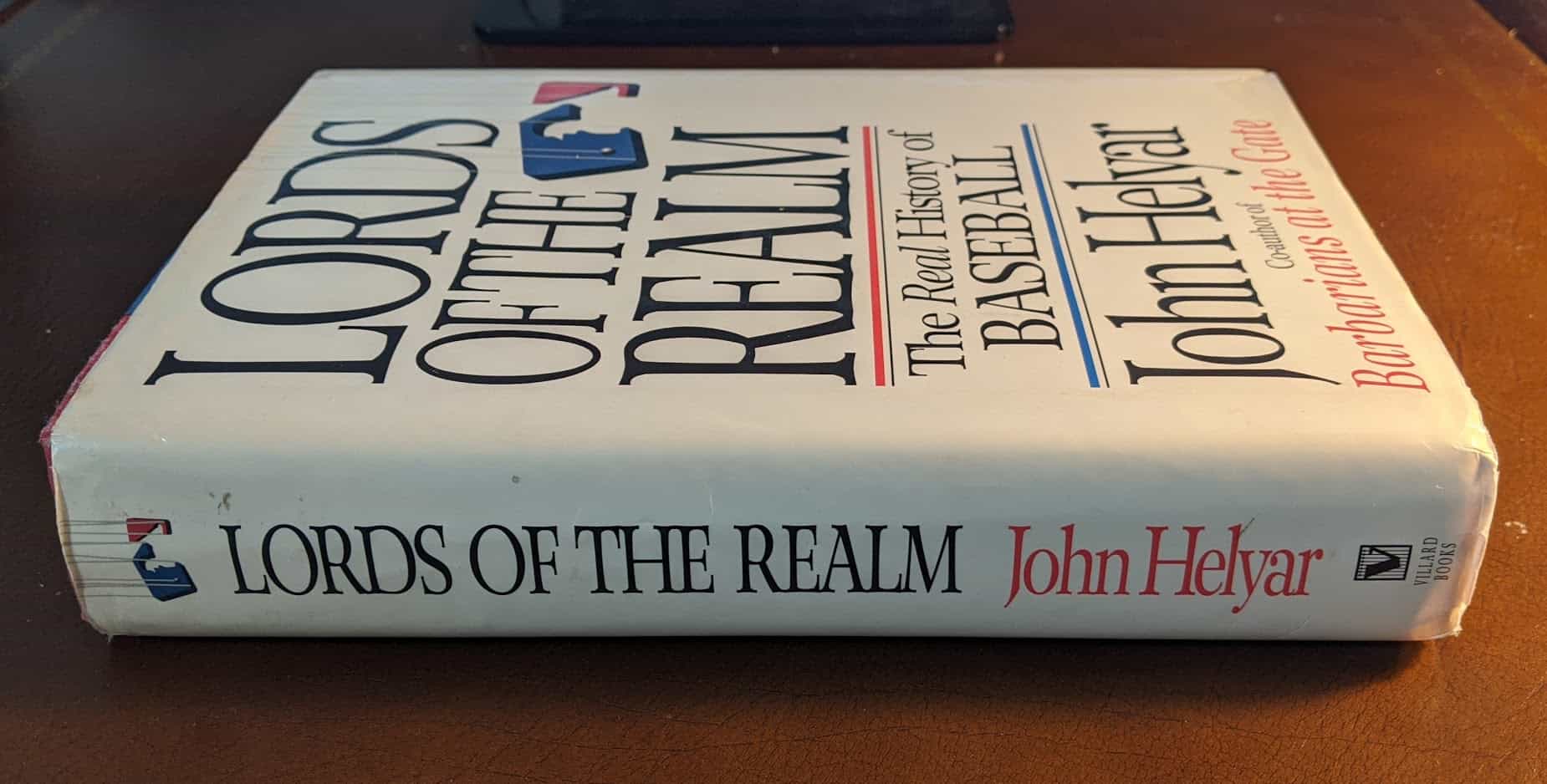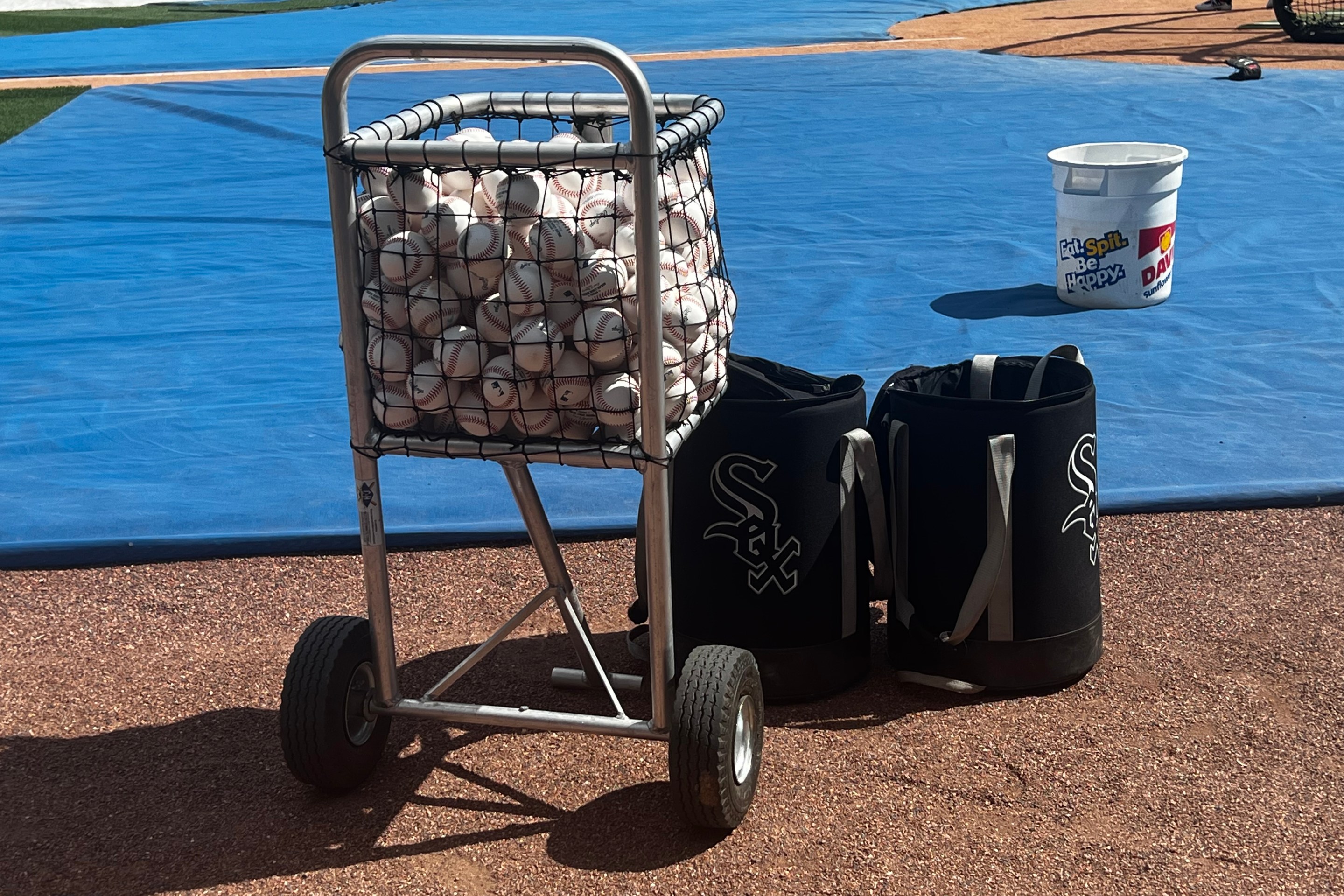As I made my way through John Helyar's "Lords of the Realm" during the public, contentious negotiations between Major League Baseball and the MLBPA, I kept wondering if we'd soon see in real time the Jerry Reinsdorf captured in the book.
Reinsdorf cuts a distinct figure in the second half of "Lords," after he arrives on the scene as the new owner of the Chicago White Sox in 1981. If he's not the smartest person in the room, he's the most aware of how foolish the room can be, which is its own kind of intelligence. Helyar quotes him as saying, "Baseball is the only industry where I have to pay someone what my dumbest competitor pays." That's similar to a quote I remember from a Sports Illustrated profile of Reinsdorf in 1997:
Then there was the time Reinsdorf took a shot at Lucchino, who had purchased the Padres in '94, during the strike. "Larry stood up [at his first owners' meeting] and basically said that the strike was pretty dumb," Reinsdorf recalls. "No one said anything at first, so at the end I raised my hand. I said, 'Isn't it funny that the smartest guys in baseball are always the last ones in?' I told him not to worry. After a while he'd be as dumb as the rest of us."
Reinsdorf isn't the only owner who is trying to figure out how to undercut the union's growing earnings during that time, but he's the most aggressive about it. Helyar gives Reinsdorf credit for figuring out how to curb the salary trajectory in arbitration in a way other owners couldn't:
Reinsdorf devised a system to partially steer the White Sox clear of the process. Chicago would offer young players a multiyear contract that, through incentive bonuses, gave them a chance to quickly climb above the minimum salary. But it also gave the team an option year, preventing the player from going to salary arbitration his first year eligible.
The union screamed bloody murder, filing a grievance that protested the allegedly coercive tactics. But it lost, and, indeed, Reinsdorf's only crime seemed to be excessive intelligence, by owner standards. The Lords had been left with but a few years when they still carried the whip hand on pay. Yet Chicago was one of the few clubs to use it.
Reinsdorf's aggressive tactics are less canny and more combustible throughout subsequent chapters. He was one of the owners in the thick of baseball's collusion scandal in the mid-1980s, most notably for sending his correspondence with Jack Morris to Morris' team, and meddling with the Phillies' attempt to sign Lance Parrish. He also stumped for a lockout in 1990 and led the ouster of Fay Vincent, which set the stage for the strike in 1994. He was one of four owners who voted against the collective bargaining that emerged from the ashes in 1996.
This version of Reinsdorf has been less visible this century, but he's occasionally made himself known, whether by running a candidate against Rob Manfred when Bud Selig retired, or issuing a terse no-comment after legendary union leader Marvin Miller was voted into the Hall of Fame.
But in an interview with the only reporter he talks to -- USA Today's Bob Nightengale, of course -- Reinsdorf finally issued his first comments on the situation as a whole. They're not encouraging, and not just because he's painting a scary picture of the club's financial picture. Most owners won't pass up an opportunity to project rough conditions when it suits them, and a fanless season is indeed new and scary territory for all professional sports teams.
No, the particular pessimism stems from his opening quote. It's so debunkable that Nightengale, who has tried to clean up White Sox messes on their behalf before, couldn't help but undermine it shortly afterward, albeit indirectly:
“I was concerned the union was maneuvering not to have a season,’’ Reinsdorf told USA TODAY Sports in a wide-ranging telephone interview from his Chicago home. “I kept hoping against hope that we’d reach an agreement and get more games in this season. I just hope the clubs and the union can figure out a way to get along before the start of next season.
“I don’t think the game was [best-] served by all of the acrimony.’’
Yet after four months of hostility – with the players union expected to file a grievance against MLB for not scheduling more games – the 2020 season officially commences July 23.
To highlight:
- Reinsdorf: "I was concerned the union was maneuvering not to have a season."
- Reinsdorf: "I kept hoping against hope that we'd reach an agreement to get more games in this season."
- Nightengale: "... the players expected to file a grievance against MLB for not scheduling more games."
One can criticize the MLBPA's platform during the negotiations for a few reasons, but "wanting fewer games than the league" was never a part of it. The league barely budged from its initial offering to pay players for 50something games. The players opened with 114. It's all part of the record.
A couple years ago, I wrote that the burgeoning White Sox rebuild could turn into a "Groundhog Day" scenario in which history will repeat itself unless Reinsdorf can resist being an active force against the MLBPA in a labor war. This isn't a promising start to that end, unless the flimsiness of his opening argument is a reflection that his heart just isn't in it this time. I'm not willing to be fooled thrice times twice, but you can't say he isn't aware of what's on the line:
“Our young players are not a finished product yet,’’ Reinsdorf says. “We feel strongly we have a great core, and can have a multi-year run of being competitive, but we don’t know what we have this year. Can [batting champion] Tim Anderson do the same? Has [Yoan] Moncada arrived? Can Luis Robert live up to all of the hype and definitely go to the Hall of Fame as our fans believe?
“We’ll find out in a hurry.’’
* * * * * * * * *
"Lords of the Realm" is worth a read if you haven't read it, and that's coming from a guy who hadn't read it before this season. Some parts lose their resonance after a quarter century. The negotiations with major networks during the 1980s had major ramifications at the time, but it's now quaint compared to the money that BAMTech pulled in.
That's later in the book, and skimmable. Most everything around it remains worth reading to understand how the league used to operate, how owners were not prepared for free agency, and how their reaction to losing battle after battle sowed the seeds of distrust that keep bearing fruit. The book also provides plenty of examples to keep in mind when the league tries crying poor.
When Helyar described ownership behavior before the advent of free agency, I couldn't help but think that Reinsdorf would have been an above-average owner during the times of the reserve clause. He's great to his own employee (the White Sox still haven't reduced staff or furloughed anybody), and the Jose Abreu contract is the latest example of his generosity extending to players who have admirably fulfilled previous obligations.
He'd probably butt heads with some players in head-to-head negotiations -- Scottie Pippen and Frank Thomas come to mind -- but even those guys ended up back in the fold. Reinsdorf has a pull on people, and it would've been fascinating to see how the combination of those characteristics and his financial stability would have played out if he arrived in the 1950s or 1960s. Alas, he arrived just as the union hit his stride, and now a lot of hopes rest on his ability to break 40 years of bad habits.
(Note: If you purchase "Lords of the Realm" through this link, Sox Machine receives a portion of the proceeds. More baseball book recommendations can be found here.)






